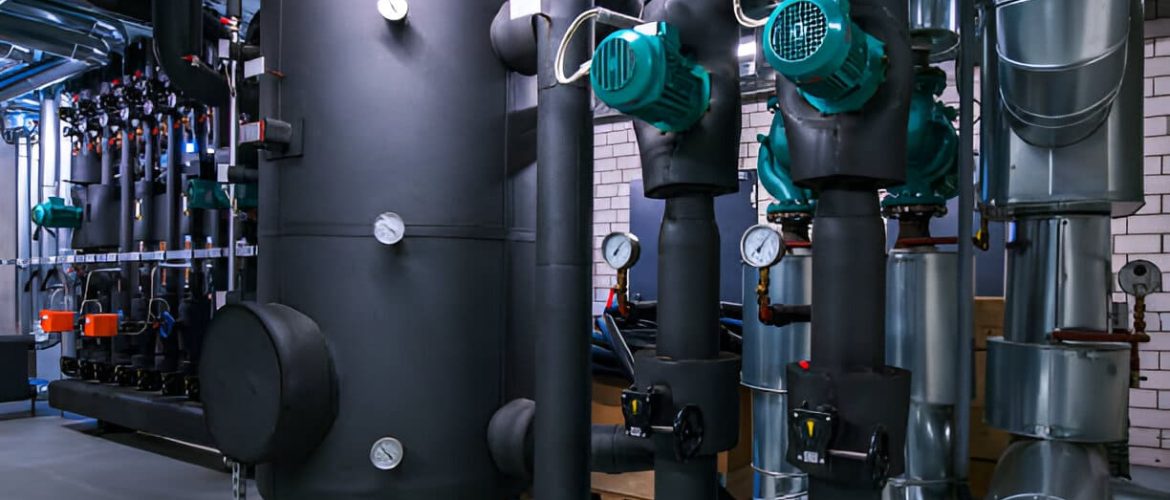Industries in Dubai, from food processing to healthcare, require reliable boiler systems to power essential processes such as heating, sterilization, and energy generation. Selecting the right boiler system isn’t just about meeting immediate operational requirements—it’s also about ensuring long-term efficiency, safety, and cost-effectiveness.
With various options available, understanding the key factors that impact your boiler choice can save both time and money while minimizing downtime. This article outlines the critical aspects to consider when selecting the best industrial boiler system for your needs.
Factors to Consider When Choosing an Industrial Boiler System
1. Determine Your Operational Requirements
Start by understanding your industry’s specific heating or steam needs. Consider the following:
- Type of process: Are you using the boiler for direct heating, sterilization, or power generation?
- Capacity: What is the required output in terms of steam or hot water flow rate?
- Pressure: Different applications require varying pressure levels. Ensure the boiler can operate at the pressure range needed for your processes.
For example, in the food and beverage industry, low-pressure steam boilers are often sufficient for sterilization, while high-pressure systems may be necessary in manufacturing or power generation.
2. Choose the Right Boiler Type
There are several types of industrial boilers to choose from, each designed for different applications. The most common types include:
- Fire-tube Boilers: Best suited for low to medium pressure applications, fire-tube boilers are compact and easy to install, making them ideal for smaller facilities.
- Water-tube Boilers: These are preferred for high-pressure, high-capacity applications, such as in large-scale manufacturing plants.
- Electric Boilers: These are energy-efficient and suitable for industries with lower steam or heat requirements.
- Waste Heat Recovery Boilers: These use waste heat from other processes (e.g., exhaust gases from turbines) to generate steam, improving overall energy efficiency.
Selecting the correct boiler type ensures optimal performance and energy savings over time.
3. Evaluate Fuel Type and Efficiency
Fuel type directly impacts operating costs and environmental compliance. Common fuel options include:
- Natural Gas: Widely available and relatively cost-effective, natural gas boilers are popular in Dubai.
- Oil-Fired Boilers: Ideal for areas where natural gas is not readily available.
- Electric Boilers: Great for industries looking to reduce emissions and utilize clean energy sources.
- Biomass Boilers: A more sustainable option, but they require consistent fuel supply and proper storage.
Efficiency matters not only for reducing fuel costs but also for meeting environmental regulations. Look for boilers with high combustion efficiency and low NOx emissions.
4. Assess Maintenance and Support Requirements
A boiler’s performance depends heavily on routine maintenance. Choose a system that comes with:
- Easy-to-access components for simpler maintenance
- Comprehensive service packages from the supplier, including regular inspections, part replacements, and emergency support
Partnering with a reliable service provider ensures your boiler remains in optimal condition, reducing the risk of costly downtime.
5. Safety Features and Compliance
Industrial boilers operate under high pressure and temperature, making safety a top priority. Check whether the boiler system includes essential safety features such as:
- Pressure relief valves
- Automatic shut-off controls
- Low-water cutoffs Ensure the boiler complies with local and international safety standards, such as ASME (American Society of Mechanical Engineers) or ISO certifications.
6. Space and Installation Considerations
Boilers can take up significant space, especially in facilities with limited room for equipment. Fire-tube boilers are typically more compact, while water-tube boilers require more space but offer higher capacity. Consider the layout of your facility and ensure the boiler can be easily installed and accessed for maintenance.
7. Life Cycle Cost Analysis
Beyond initial purchase costs, consider the total lifecycle cost of the boiler system, which includes:
- Fuel consumption
- Maintenance and repair expenses
- Operational efficiency
- Potential downtime costs
An energy-efficient boiler might have a higher upfront cost but could offer substantial savings in fuel and maintenance over its lifespan.
Why Choose a Reliable Boiler Provider in Dubai?
Partnering with a trusted boiler supplier in Dubai ensures that you get a high-quality system tailored to your specific needs. A reliable provider can offer:
- Customized solutions based on your industry requirements
- Comprehensive after-sales services, including installation, maintenance, and support
- Energy-efficient and compliant models that reduce operational costs and environmental impact
Companies like Isaac Boilers Pvt. Ltd. specialize in industrial boiler systems, offering everything from oil- and gas-fired boilers to waste heat recovery solutions, backed by extensive service and support.
Final Thoughts
Selecting the right boiler system for your industrial needs in Dubai involves careful consideration of your operational requirements, fuel type, efficiency, safety, and lifecycle costs. Making the right choice not only ensures smooth operations but also minimizes long-term costs and enhances energy efficiency.
By working with a reliable provider, you can get expert guidance, access to high-quality boilers, and ongoing support to keep your systems running efficiently.
FAQs
1. What is the best boiler type for industrial applications in Dubai?
The best boiler depends on your specific needs. For high-capacity applications, water-tube boilers are recommended, while fire-tube boilers are suitable for smaller operations with lower pressure requirements.
2. How often should an industrial boiler be serviced?
Industrial boilers should be serviced at least once a year. However, frequent inspections are recommended, especially for high-capacity systems or those operating in demanding conditions.
3. Can I use renewable energy with my industrial boiler?
Yes, biomass boilers and electric boilers powered by renewable energy are options for industries seeking to reduce their carbon footprint.
4. How can I improve the efficiency of my existing boiler system?
You can improve efficiency by performing regular maintenance, optimizing fuel combustion, upgrading insulation, and ensuring proper water treatment to prevent scale buildup.




No comments yet.